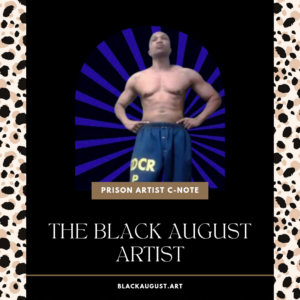By Genoa Barrow | OBSERVER Senior Staff Writer

Sacramento State professor Dr. Ernest Uwazie is an internationally recognized expert on conflict resolution. He’s currently focused on incarceration and teaching people lessons that stretch their imaginings of what such conversations can look like and how impactful they can be.
Dr. Uwazie chairs the university’s division of criminal justice and serves as director of the university’s Center for African Peace and Conflict Resolution. He’s also leading a transformative restorative justice training program. The program trains people to facilitate meetings between victims and their offenders and prepares both parties for face-to-face interaction.
While currently funded through a two-year grant from the California Department of Corrections and Rehabilitation, Dr. Uwazie has been doing the work since 2015. His work garnered attention, and dollars, as it fits into the state’s overall movement towards restorative justice, rehabilitation and reducing the rate of incarceration.
“The goal is to have a cadre of people in the area that can not only be educated on what [restorative justice] is, but be able to serve where needed,” Dr. Uwazie says.
He and his team have trained 20 people through his program.
Dwight Harvey, an educational administrator at the Sacramento County Youth Detention Facility, is among those who have gone through Dr. Uwazie’s restorative justice training. The sessions inform his work with the region’s educators and youth.
“I’ve always wanted to work with administrators on using this on their campuses, using this with teachers, with students and just changing the way that administration looks at discipline,” Harvey says.
Participation includes an intense interview process that gauges one’s sensitivity around restorative justice.
“They did a great job of really allowing you to see what it would be like, so that you could make an informed decision about whether this was something you wanted to really do. And honestly, I had never worked with incarcerated adults, so I was really interested in learning that process, because I knew that it would be different than anything that I had done before and it was real.”
Throughout training, participants talked with victims who had met with their offenders and with people locked up for their offenses.
“[Dr. Uwazie] truly prepared us to be natural and to understand what our role would be as we’re in the facility talking to incarcerated adults. Some of these adults might have had life sentences, or they were going to be there for a while,” Harvey says. “That was something that I never truly experienced at that close a level, even though I’ve had family members that were incarcerated. I never had these kinds of conversations with them, so it was a different experience.”
There were definite takeaways, he says.
“I can’t take for granted that just because maybe I feel I had a hard life, that I know your story. I have to be honest, I can’t relate to a person who was abused as a child, because I didn’t go through that,” Harvey says. “I can empathize with you, but there’s so many things that I don’t know, and I can’t relate to. So I have to be careful in my words and don’t just overuse things like, ‘Oh, I understand.’ I don’t understand. I have to be honest about that.”
As Harvey reflects on taking Dr. Uwazie’s classes, he also reflects on mass incarceration as a whole.
“There’s no secret that people of color are incarcerated at a way higher percentage than anybody else,” he says. “Do I think some people should be there? Yeah, if they did the crime and it was heinous or whatever. But are there people there that shouldn’t be there? Yes, I believe that also, so I’m not truly a proponent of mass incarceration in the way that it’s been done. I think it’s a systemic problem that has gone on. This is just another form of slavery in my mind. I think that because of those in power, and the mindsets thereof, I don’t know that it’s ever going to change.”
Retired Sac State Professor Sylvester “Jim” Bowie went through Dr. Uwazie’s restorative justice training from March-May 2022 and is in his second cohort of practice training at Folsom Prison.
“The benefits are many as I feel that I now can share my experience, training, background, and insight with men who have caused harm, are paying the price or suffering the consequences of their actions. I am able to make a contribution, to help these men realize that they now have the opportunity to become better citizens inside or outside of the prison system,” Bowie says.
Having successfully completed formal training, Bowie can volunteer as a facilitator of victim-offender dialogues and mediation sessions. Bowie, who retired in 2021, previously taught on the topic of restorative justice as a faculty member in the university’s division of social work.
“While I was not trained to facilitate the dialogues or mediations, I was familiar with the thesis behind restorative justice. In completing the training, I was hoping to be able to make a positive impact in the community as well as develop capacity and ability for more or advanced level, specialized skills, and knowledge acquisition.
“Additionally, I was hoping that I could be a community resource as an restorative justice practitioner that would be a source for good while serving a population that needs the support of community members,” Bowie continues. “This service is designed to help the incarcerated individuals do less harm, as well as gaining the opportunity for restoration to both victims and themselves. Maybe most importantly, I hope I can be a source of help for people who have been harmed to regain their agency, experience a sense of empowerment and get answers to some of the haunting questions they may have through well facilitated victim-offender dialogues and victim-offender mediations.”
Not all the people they’ll assist will be African American, but there’s a reason Bowie wants to work with that population.
“Research shows that while Caucasians are underrepresented in the prison system they are the main beneficiaries of restorative justice programs,” Bowie says. “On the other hand, Blacks and other people of color are both victims and offenders and while I do look forward to working with all people who can benefit from my efforts, I am excited about the possibilities of working with African Americans and other Black victims and offenders.”
Dr. Uwazie also leads a weekly “restorative justice circle” at California State Prison, Sacramento, the facility formerly known as New Folsom that is adjacent to the original facility.
“Every Friday, we go out with my team to meet with a group of 20-something men – Black, Hispanic, whites [but] mostly Blacks and Hispanics – who have probably done the worst crimes you can think of, that have come to the point where they want to be held accountable, even if they don’t come out,” Dr. Uwazie says.
“That could mean apologizing to the person or persons that they’ve harmed directly or indirectly, including their family members or friends that may have suffered as a result of their incarceration. We also talk about their own journey of self-forgiveness. If you’re asking somebody to forgive you, you have to be willing and capable of forgiving yourself. The whole goal is to figure out how you can learn from the lessons and do better and maybe even transform other people’s lives.”
Dr. Uwazie has found the men to be genuine in their efforts and motivations for participating. He doesn’t believe they’re doing it simply to have time out of their cells.
“We run this program with them for five, six months,” he says. “You can see where they were when you go in and see their progress with the discussions and activities that they engage in.”
The work is extensive.
“Part of it also is preparing them for the possibility or eventuality that they will eventually have a one-on-one dialogue with a person that they have harmed, whether they do that with us, or they do that down the line.”
Most will be getting out of prison, but Dr. Uwazie says the sessions also benefit those who remain behind bars, as they can learn to be good to themselves and those around them, whether staff or fellow prisoners. Some may not get the chance to meet victims face to face, but may write letters of apology. Dr. Uwazie’s team has helped men do that. Letters deemed appropriate by the CDCR are mailed.
Like his student Bowie, Dr. Uwanzie is intentional about addressing the lack of representation in the restorative justice space. Even though Blacks are disproportionately represented in the overall prison population, there aren’t many who do victim-offender facilitation, he says.
“As a professor of criminal justice, it’s mind-boggling. So I made it very clear in my [grant] proposal that this is one thing where I think we’re going to have added value.”
CDCR refers incarcerated people for Dr. Uwazie to work with. Victims advocacy groups also link people to him. Recently, the work has taken them to Mule Creek State Prison, Valley State Prison and Folsom Prison, where they helped a Black woman meet with her father’s killer. Her story is also featured in The OBSERVER’s “Inside Out” series.

Over the coming weeks, “Inside Out” will highlight the experiences of formerly incarcerated individuals and their families, look at efforts to improve local jail and prison facilities, and share the perspectives of Black correctional staffers and attorneys who work on change from within and activists who have dedicated their lives to shining a light on the inequities of the criminal justice system.





